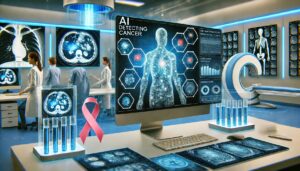Digital health technologies are transforming the healthcare industry by providing innovative solutions to improve patient care, streamline workflows, and enhance overall system efficiency. These technologies encompass a range of tools, including mobile apps, wearable devices, telemedicine platforms, and data analytics, all of which are helping to modernize healthcare delivery. This blog explores the significant benefits of digital health technologies and their role in shaping the future of healthcare.
What Are Digital Health Technologies?
Digital health technologies refer to tools and services that use digital advancements to support healthcare delivery. They include electronic health records (EHRs), remote monitoring devices, artificial intelligence (AI), telemedicine, and mobile health applications. These innovations empower both patients and providers by enhancing access to care, improving diagnostic accuracy, and enabling personalized treatment plans.

Why They Matter: Digital health technologies bridge the gap between patients and healthcare providers, making medical services more accessible and efficient. They help reduce costs, improve patient outcomes, and create a more connected healthcare ecosystem.
Key Benefits of Digital Health Technologies
1. Improved Access to Healthcare
Digital health technologies make healthcare more accessible by eliminating geographical barriers. Through telemedicine and mobile apps, patients in remote or underserved areas can consult with specialists and receive timely medical advice.
- Example: A patient in a rural community can use a telemedicine app to connect with a doctor in a city, saving time and travel expenses.
- Impact: Increased access to care reduces health disparities and ensures timely intervention for critical conditions.
2. Enhanced Patient Engagement
These technologies empower patients to take an active role in managing their health. Mobile apps and wearable devices provide real-time data on fitness, diet, and vital signs, encouraging healthier lifestyle choices.
- Example: Smartwatches that monitor heart rate and sleep patterns help users understand and improve their daily habits.
- Impact: Engaged patients are more likely to adhere to treatment plans, leading to better health outcomes.
3. Streamlined Workflows for Providers
Digital health technologies reduce administrative burdens for healthcare professionals by automating routine tasks like scheduling, billing, and documentation. Electronic health records (EHRs) allow providers to access and share patient information seamlessly.
- Example: AI-powered chatbots can handle appointment scheduling, freeing up staff for other critical tasks.
- Impact: Streamlined workflows increase productivity and allow providers to focus more on patient care.
4. Improved Diagnostic Accuracy
AI and machine learning algorithms analyze large datasets to assist in diagnosing diseases more accurately and efficiently. This reduces the likelihood of errors and enables early detection of conditions.
- Example: AI tools can analyze imaging scans to detect early signs of cancer.
- Impact: Accurate diagnostics lead to earlier treatment and improved patient outcomes.
5. Cost-Effective Solutions
By minimizing unnecessary hospital visits and leveraging remote monitoring tools, digital health technologies help reduce healthcare costs for both patients and providers.
- Example: Remote patient monitoring devices allow chronic disease management from home, reducing the need for frequent check-ups.
- Impact: Lower costs make healthcare more accessible and sustainable.
Digital Health Technologies in Chronic Disease Management
Managing chronic conditions like diabetes, hypertension, and heart disease requires continuous monitoring and regular communication with healthcare providers. Digital health technologies play a crucial role in this area by enabling:
- Remote Monitoring: Devices that track blood glucose levels or blood pressure send real-time data to providers.
- Medication Management: Mobile apps remind patients to take their medications on time.
- Personalized Care Plans: AI-driven tools analyze patient data to suggest tailored treatment options.
Example: A diabetes patient using a continuous glucose monitor can share their data with their doctor through a mobile app, enabling adjustments to treatment plans as needed.
How Digital Health Technologies Support Preventive Care
Preventive care aims to reduce the risk of developing serious health issues. Digital health technologies enable proactive health management by:
- Providing tools for early risk detection.
- Encouraging healthier behaviors through gamification and rewards.
- Offering easy access to health education resources.
Example: A fitness app that tracks daily activity and provides reminders to stay active can help prevent conditions like obesity and heart disease.
Challenges of Adopting HealthCare Technologies
While the benefits are significant, there are challenges to consider:
- Privacy Concerns: Protecting sensitive patient data is critical.
- Digital Divide: Not everyone has access to the internet or digital devices.
- Integration Issues: Combining new technologies with existing systems can be complex.
Solutions:
- Implementing robust cybersecurity measures.
- Expanding access to affordable devices and internet connectivity.
- Providing training programs for both patients and providers.
The Future of HealthCare Technologies
1. AI-Driven Insights
AI will play a larger role in personalizing care, predicting health trends, and improving diagnostics.
2. Expanded Telehealth Services
Telehealth will continue to grow, offering more specialized care options and virtual treatments.
3. Wearable Innovations
Wearable devices will become more advanced, providing even deeper insights into health metrics.
Conclusion
Digital health technologies are reshaping the healthcare landscape, offering numerous benefits such as improved access to care, better patient engagement, and enhanced efficiency for providers. As these technologies continue to evolve, they hold the potential to create a more equitable and effective healthcare system. By addressing current challenges and embracing innovation, we can fully realize the benefits of digital health technologies.
For more insights on healthcare technology, check out our related post on telemedicine benefits. Learn more about digital health trends on HealthIT.gov.




